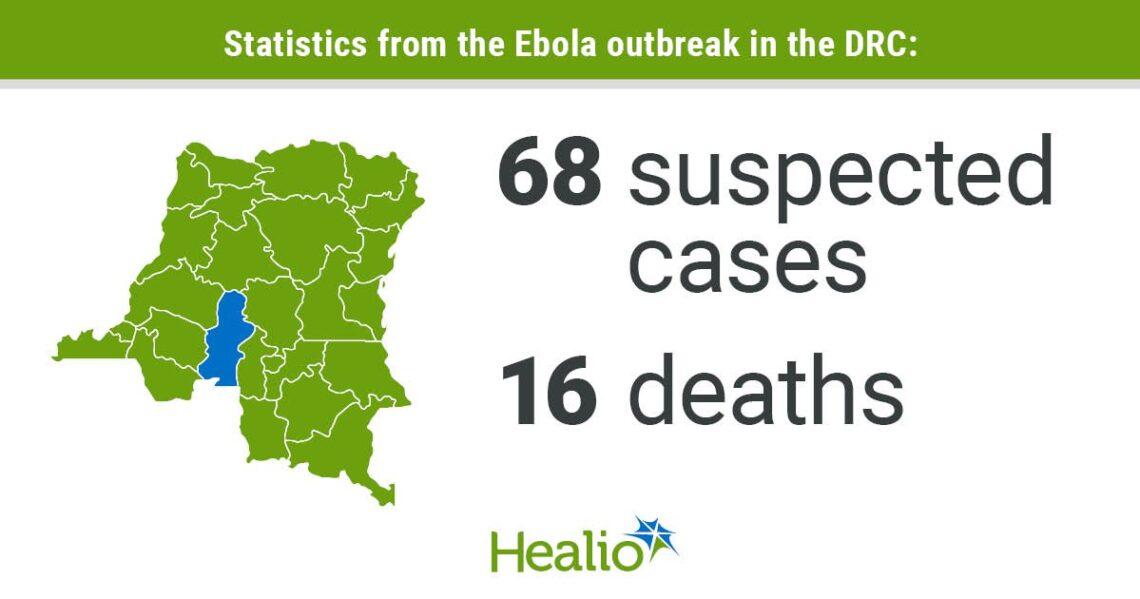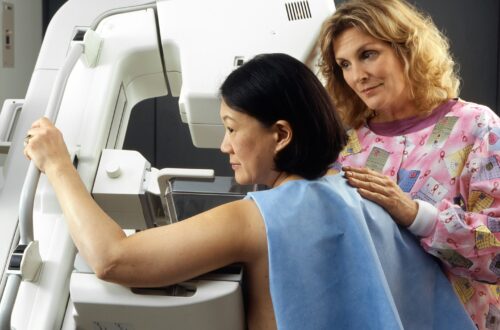September 12, 2025
3 min read
Key takeaways:
- The outbreak has spread within Kasai province, raising fears of cross-border spillover into Angola.
- Foreign aid cuts have likely limited the U.S.’s participation in the response.
An Ebola virus outbreak in the Democratic Republic of the Congo has doubled in size and spread in the province where it started, raising fears of cross-border spillover into neighboring Angola, a health official said.
The outbreak likely spread undetected before the first cases were confirmed as family members traveled to the impacted area for funerals and then returned home, the official said. People who die from Ebola remain infectious after their death, and burial practices that involve touching and handling bodies often lead to further transmission.

Data derived from WHO.
“Spread is often expected at the beginning, before the confirmation takes place and the response kicks in, because at the beginning, people are scared. They don’t know what it is,” Ngashi Ngongo, MD, PhD, MPH, principal advisor to the director of the Africa CDC and head of the incident management support team in the DRC, told reporters on Thursday.
According to Ngongo, there have been 68 suspected cases and 16 deaths in the outbreak, which is occurring in remote Kasai province on the DRC’s south-central border with Angola. It is the country’s 16th Ebola outbreak, but the first in more than 3 years.
When the outbreak was announced last week, it was confined to two health zones in the province. It has spread to two more, Ngongo said, although he advised that because Kasai is so remote, the immediate risk is to other areas within the province and to Angola and not to other non-bordering countries, unless there is spread to a populous city. He classified the global risk as “low.”
The outbreak involves a species of Ebola, Zaire ebolavirus, that can be targeted with highly effective vaccines. The DRC has already procured 2,000 doses of vaccine from an international stockpile and is confident it will be able to get more upon request, according to Ngongo, who said the country was told there are a half-million doses in the stockpile. He said vaccinations began with 68 frontline health workers.
The country also has 100 doses of mAb114, a monoclonal antibody isolated from a survivor of a 1995 Ebola outbreak in the DRC who maintained antibodies against the disease for 11 years.
Limited resources
There are numerous other ongoing disease outbreaks in Africa competing for limited resources, especially in the wake of the United States’ gutting of foreign aid programs that funded outbreak responses. Outbreaks of mpox, cholera, measles, dengue and Lassa fever have sicked nearly a half-million people in dozens of countries, killing more than 7,300, Ngongo said.
The U.S. has devoted considerable resources to past Ebola outbreaks, including the West African epidemic, which was the largest Ebola outbreak in history and the CDC’s largest ever response. But the country’s capacity to help has been diminished by significant cuts to foreign aid programs under the Trump administration, said Josh Michaud, PhD, MHS, associate director for global health policy at KFF.
These include the dismantling of USAID, which has diminished the number of expert staff in place to respond to infectious disease outbreaks, and the considerable challenges faced by the CDC over the past 8 months, including large-scale layoffs and uncertainty in the top leadership positions, according to Michaud.
“In addition, the National Security Council, which should have responsibility for coordinating U.S. government responses to international outbreaks, has lost staff dedicated to this purpose leaving it not entirely clear who is responsible for overseeing any such efforts,” Michaud told Healio.
“Taken together, the cuts in staff and funding and the re-shuffling of offices and responsibilities related to international outbreak response are likely to undermine the U.S. capacity to contribute to the Ebola response in DRC, should it be needed and required,” he said.
An HHS spokesperson told Healio that the CDC is “actively engaged” in providing support for the outbreak. A staff of 28 CDC personnel assigned to the DRC are aiding the response, the spokesperson said.
In addition, “An epidemiologist and a lab expert were rapidly deployed to the outbreak area to provide technical expertise in surveillance, case investigation and contact tracing,” the spokesperson told Healio in an email. “Resources from headquarters in Atlanta are being mobilized to strengthen border control, laboratory testing, epidemiology and infection prevention and control measures.”
‘An African response to an African problem’
Ngongo said the Africa CDC is working to “come up with a response that is an African response to an African problem,” which he said will depend largely on increased health spending by African nations.
He called for a recommitment to the 2001 Abuja Declaration, in which African countries pledged to earmark 15% of their national budgets to health. According to a document published by the Africa CDC in April, only three countries have routinely done so, with dozens of others failing to commit even 10%.
Ngongo said getting countries to recommit to spending 15% of their budgets on health is a “good starting point.”
“You cannot claim your sovereignty and your independence if you are not putting your own money into your health and depend on somebody else to pay,” he said.
References:
For more information:
Josh Michaud, PhD, MMS, can be contacted at jmichaud@kff.org.





